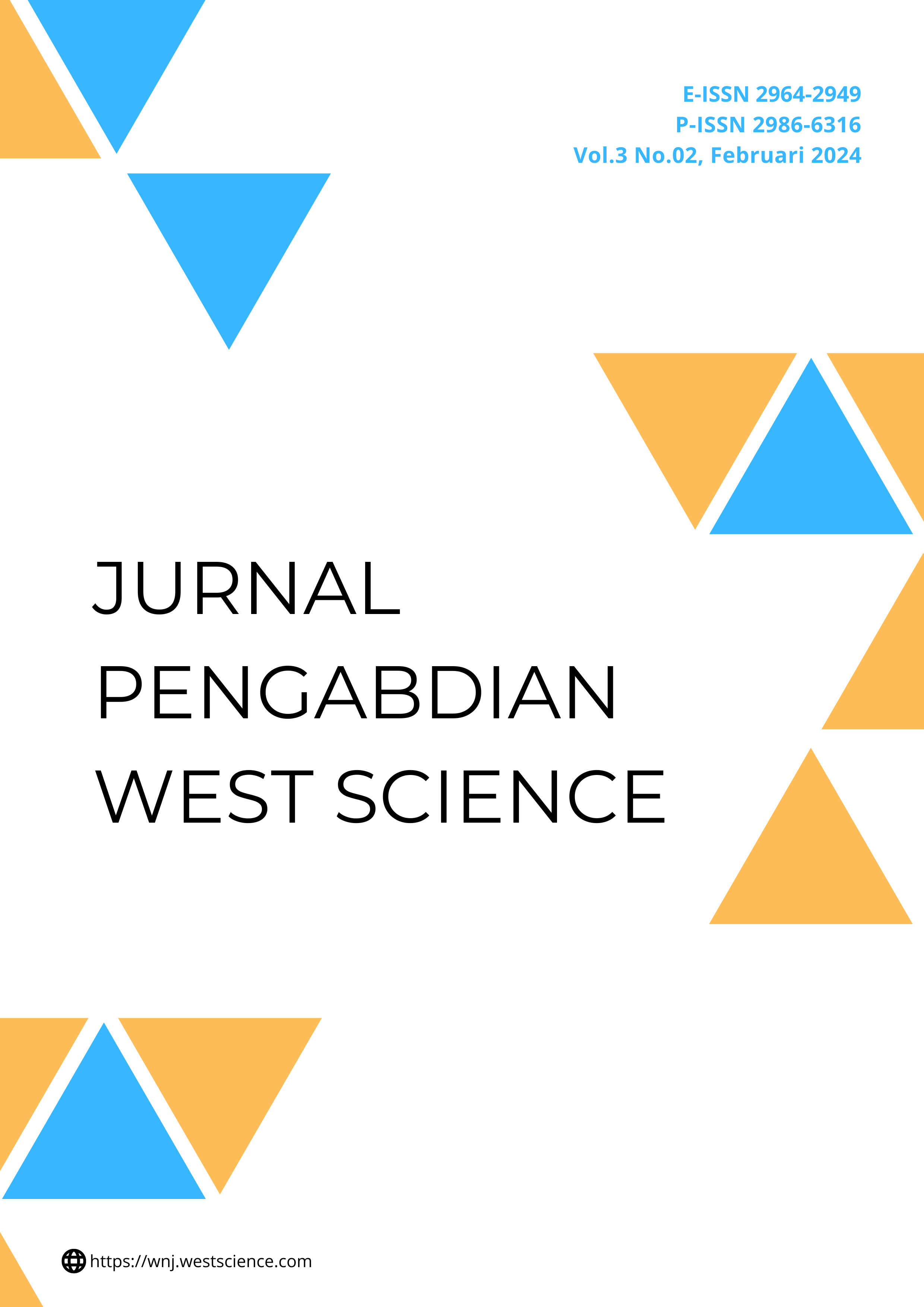Implementation of Women's Education in the Green Aksara Community in Dengok Village, Playen District, Gunung Kidul Regency for Sustainable Development
DOI:
https://doi.org/10.58812/jpws.v3i02.971Abstrak
Abstract: This research aims to 1) describe the implementation of women's education for sustainable development by tutors and technical resource persons at the Green Aksara Association, 2) describe the supporting and inhibiting factors in the implementation of women's education for sustainable development. This research is descriptive research with a qualitative approach. The subjects of this research are institutional managers, technical resource persons, accompanying tutors and students who study. Data collection used participatory observation methods, in-depth interviews, and documentation. The researcher is the main research instrument with the help of observation guidelines, interview guidelines and documentation guidelines. The data analysis techniques used are data display, data reduction and conclusion drawing. Triangulation is carried out to explain the validity of the data using source triangulation. The results of the research show 1) the implementation of women's education for sustainable development in the green script community delivers environmentally friendly literacy and skills material, applied with participatory learning principles which appear in learning materials, learning preparation, preparation and learning stages, learning media and learning evaluation. 2) supporting factors for the implementation of women's education include the commitment of institutional management, support and participation from partners, application of participatory learning principles, and easy access to learning facilities. Meanwhile, the obstacles are increasing the time to repeat material for the elderly, learning time at the same time as agricultural activities, the educational skills possessed by the resource persons are still lacking.
Referensi
Ainiyah, Q. (2017). Urgensi Pendidikan Perempuan Dalam Menghadapi Masyarakat Modern. Halaqa: Islamic Education Journal, 1(2), 97–109. https://doi.org/10.21070/halaqa.v1i2.1240
Assyakurrohim, D., Ikhram, D., Sirodj, R. A., & Afgani, M. W. (2022). Metode Studi Kasus dalam Penelitian Kualitatif. Jurnal Pendidikan Sains Dan Komputer, 3(01), 1–9. https://doi.org/10.47709/jpsk.v3i01.1951
Dwiyanto, D. (2021). Metode Kualitatif:Penerapanna Dalam Penelitian. 0, 1–7.
Komalasari, M. A. (2020). Kapabilitas Manusia dan Pemanfaatan Modal Sosial dalam Pemberdayaan Masyarakat: Suatu Upaya Mengatasi Kesenjangan. Media Informasi Penelitian Kesejahteraan Sosial, 43(2), 153–164. https://ejournal.kemensos.go.id/index.php/mediainformasi/article/view/2146
Muafiah, E. (2013). Pendidikan Perempuan di Pondok Pesantren. Nadwa: Jurnal Pendidikan Islam, 7(1), 89–110. https://doi.org/10.21580/nw.2013.7.1.545
Ode Riniati, W., Rais, R., Setya Wismoko Putri, R., Al Haddar, G., Azis, F., Bandung, K., & Barat, J. (2023). Role Of School Facilities And Infrastructure On Performance Of Senior High School Teacher. Sempaja Sel., Kec. Samarinda Utara, 05(03), 5805–5814.
Sari sasi gendro, dea aulya. (2022). Buku Metode Penelitian Kualitatif & Kuantitatif. In LP2M UST Jogja (Issue March).
Setya, R., Putri, W., Semarang, U. N., Semarang, U. N., & Pendidikan, H. (2014). Kebijakan pemerintah kabupaten sleman dalam mengatasi pemenuhan hak pendidikan bagi anak jalanan. 83–90.
Setya Wismoko Putri, R., & Saliman, S. (2022). Information Technology-Based Learning to Increase Secondary School Students’ Learning Interest. AL-ISHLAH: Jurnal Pendidikan, 14(4), 6285–6296. https://doi.org/10.35445/alishlah.v14i4.1
Unduhan
Diterbitkan
Cara Mengutip
Terbitan
Bagian
Lisensi
Hak Cipta (c) 2024 Raudya Setya Wismoko Putri, Liliek Pratiwi, Gita Milenia Setya Wismoko Putri

Artikel ini berlisensiCreative Commons Attribution-ShareAlike 4.0 International License.



















 Instagram
Instagram 